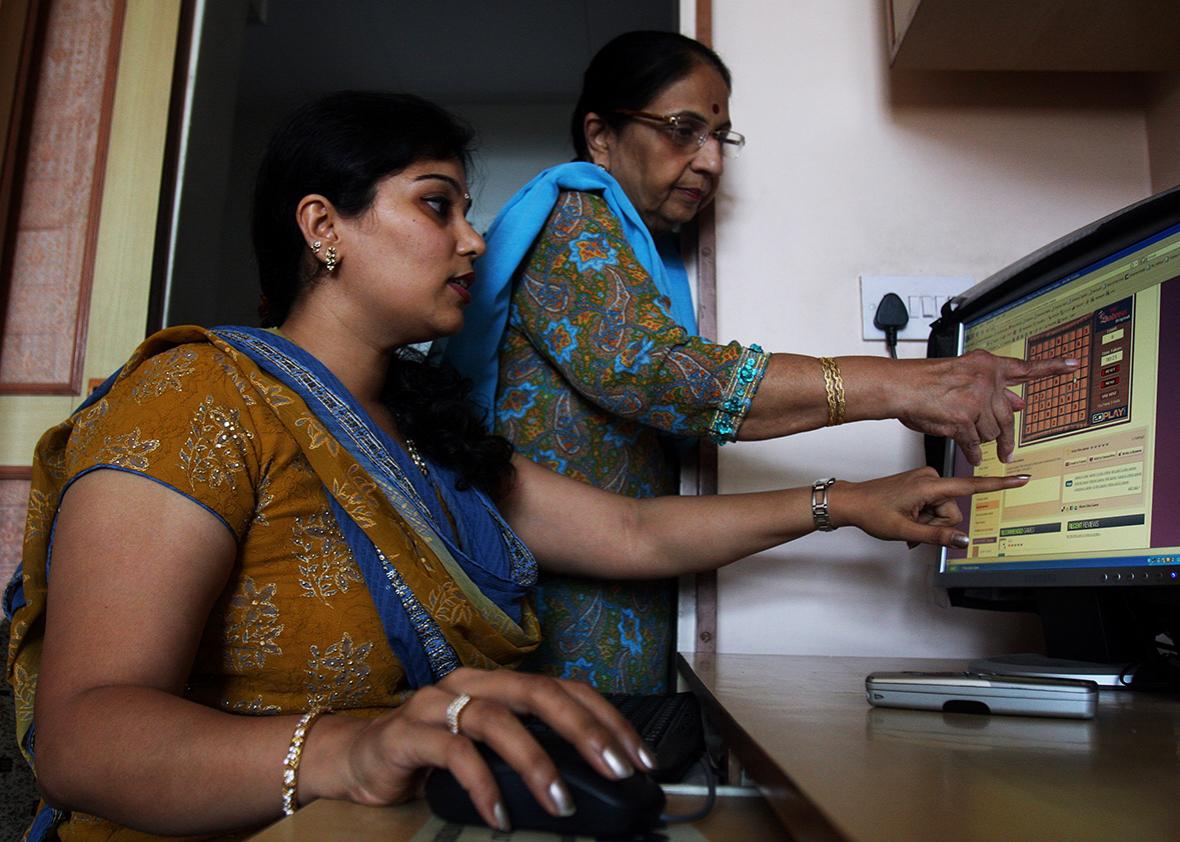Republicans like Ted Cruz pitched a fit when the U.S. government ended its oversight of the internet governance organization ICANN on Sept. 30, claiming that the country was essentially “giving up” control of the internet. ICANN is an international nonprofit, multistakeholder organization that manages the allocation of top-level domain names like .org and .edu. (For more information about the organization and the handover, read this Future Tense primer.)
But this change wasn’t capitulation—it was long overdue. Though the United States dominated the internet for some time, that is changing. Forty-four percent of the planet’s population was using the internet in 2015; in 2005, according to the World Bank, that number was only 16 percent. U.S. internet users now make up just 7 percent of the global population online.
Meanwhile, in India, there is a fierce debate over net neutrality—whether traffic over the internet can be prioritized by who sends it. The fight there is focused on Free Basics, the Facebook-backed partnership that provided free access to a limited number of applications, including Facebook itself. The Indian telecommunications regulator recently banned Free Basics on the grounds that it contravened regulations on discriminatory tariffs for data services precisely because some internet content was delivered free while the rest was not.
ICANN and net neutrality are important to the global discussion about the internet. But such governance concerns are second order for most of the world’s internet users—and even less significant for those who can’t get online at all. The big concerns regarding the internet for most of the people on the planet focus on poor regulation of the physical infrastructure, worse regulation of the enabling infrastructure, and violent regulation of free speech.
Perhaps the most important institutions that determine internet use and access are those that determine economic performance, because the biggest single reason that internet use is lower in poor countries like Tanzania (5 percent online) than rich countries like the United States (75 percent online) is precisely that poor countries are poorer than rich countries For all the price of access has been falling, many people still can’t afford the gadgets and subscriptions that internet access requires. A simple smartphone still costs $50 in developing countries, and that’s just the beginning: In a 2015 study of global internet costs by Robert Kenny—a telecommunications consultant who is also my brother—the median cost for a gigabit of mobile data access in the poorest one-fifth of countries surveyed was $23.57. That’s 19 days of income for someone living at the global extreme poverty line. So it is not surprising that usage rates—especially for broadband internet—are more sensitive to prices in the developing world than the developed world. A recent study of Latin American countries suggested a 10 percent fall in broadband retail prices would lead to a 22 percent rise in broadband penetration.
Internet costs and access aren’t just about the overall governance—and so wealth—of a country. The institutions that more directly control infrastructure have an outsize role to play. A number of global studies have found that how telecommunications infrastructure is regulated makes a real difference: Open competition among fixed and mobile telephone companies as well as internet service providers extends access and lowers prices, for example. And if you can’t charge your phone or power your computer, it isn’t much use having them: That’s why limited access to electricity is another infrastructure barrier to internet use, especially in low-income countries.
And then there are the institutions that control what you can do and say online or off. Menzie Chinn and Robert Fairlie, economists at the University of Wisconsin and the University of California–Santa Cruz respectively, analyzed the differences in internet use across the world and suggested a measure designed to reflect the strength of the legal system and protection of rights was one important factor. In particular, countries that restrict freedom of speech or the press rarely spare online communications. China’s “great firewall” has omnipresent filtering that allowed the government to remove all mention of a “jasmine revolution” being proposed online as the Chinese answer to Tunisia’s Arab Spring in 2011. Saudi Arabia has three chokepoints through which all internet traffic to and from the country flows, overseen by the Communications and Internet Technology Commission. And woe betide those who offend the politically connected. Raif Badawi, a Saudi blogger and father of three, was sentenced in 2012 to 1,000 lashes for “insulting Islam through electronic channels”—probably because he criticized senior religious officials in the country.
It isn’t just the government, of course: Access and use can be limited by customs and norms much closer to home. In the United States, more women use Facebook than men. In India, only 24 percent of users are women. In Saudi Arabia the proportion is less than 1 in 5. Countries where women are second-class citizens are full of men worried that their wives, sisters, or daughters might use the internet to express their opinions and band together to push for change. Given the importance of older communications technologies like the television in shaping attitudes, the misogynists are probably right to worry.
In short, the big question of “internet control” in most of the world isn’t “who gets to set domain name policy.” It is who has the money and skills to access the technology; who limits access to the infrastructure of wires, fibers, computers, and phones; who regulates applications; and who decides what is acceptable to do and say online. The sooner these constraints are lifted, the sooner the internet can become a powerful force for global equality.
This article is part of the “Who Controls the Internet?” installment of Futurography, a series in which Future Tense introduces readers to the technologies that will define tomorrow. Future Tense is a collaboration among Arizona State University, New America, and Slate.
